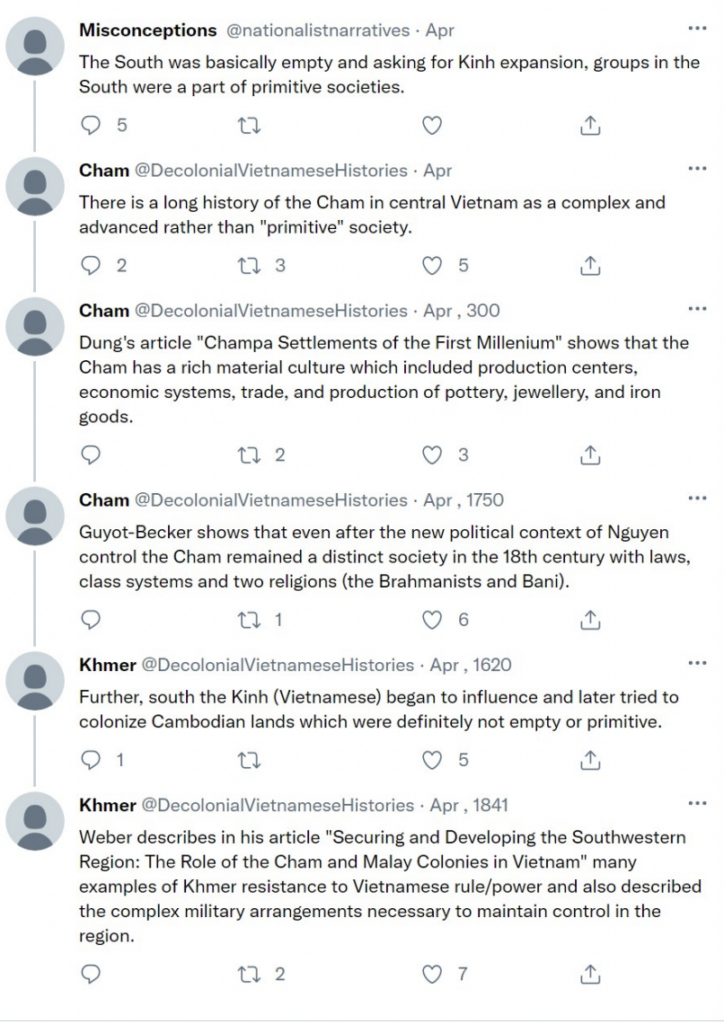Weekly Reflection #2: Protecting, Creating, and Recreating Information
This week has given me new knowledge on protecting my students’ information and privacy. Specifically, it has made me question ways to use social and alternative media ethically and safely in my classes. Social media and novel presentation methods are very useful in teaching and learning public history.
It reminded me of a project I did in university to present Vietnamese history to the public in a fun and accessible way. I wanted to utilize social media in my presentation, specifically twitter, but I do not use twitter, did not want to provide my personal information, and did not want to go to the pain of making fake accounts. Ultimately, I found a website called TweetGen which allows you to create fake tweet reply threads. The website does not require the user to make an account and has a clear privacy policy and terms of service accessible from the homepage.
Here is a section I did for my project:

This project could be further improved by added profile pictures for the fake twitter accounts using open source images.
I’m happy to have come to find this privacy safe digital history lesson and look forward to discovering more!
Here are the references I used to create that tweet thread:
Therese Guyot-Becker, “An Introduction to Cham Law based on 18th Century Legal Documents,”
in Griffth & Hardy.
Lam Thi My Dung, “Champa Settlements in the first Millennium,” in Griffiths & Hardy.
Nicolas Weber, “Securing and Developing the Southwestern Region: The Role of the Cham and
Malay Colonies in Vietnam (18th-19th centuries),” Journal of the Economic and Social History
of the Orient (2011) 739-772.